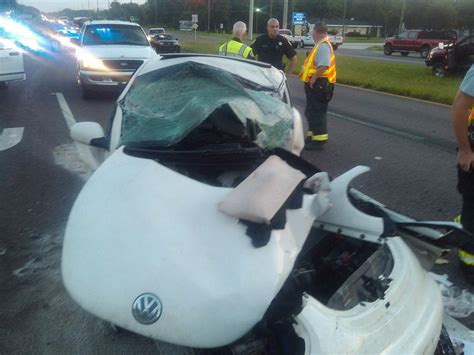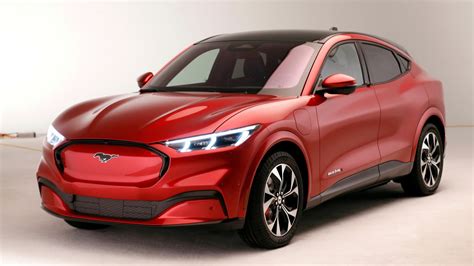Volkswagen is one of the world’s largest automotive companies, but in 2015 they got caught in a major scandal. In 2015, the US Environmental Protection Agency (EPA) discovered that Volkswagen had installed a software designed to cheat emissions testing. The software, which Volkswagen had installed in many of its diesel vehicles, was designed to detect when the car was being tested on a dynamometer. The software would then change the car’s performance, allowing it to pass the emissions tests, but emitting illegal levels of nitrogen oxides during normal driving.
The scandal quickly spread throughout the world, and Volkswagen was accused of deliberately deceiving both consumers and regulators, resulting in hefty fines and lawsuits. It was estimated that the scandal cost Volkswagen over $30 billion in penalties, fines, and legal fees. To make matters worse, the scandal caused a sharp decline in the company’s stock price, as well as a loss of trust from consumers.
The scandal also resulted in changes to the company’s management structure. Matthias Müller, who was the chief executive of Porsche at the time, was appointed the new CEO of Volkswagen. He has since been working to restore the company’s reputation, but it will take time for consumer trust to be restored.
Volkswagen has also taken steps to make sure that something like this doesn’t happen again. The company has implemented a new environmental monitoring system, which is designed to detect any suspicious activity. Additionally, Volkswagen has invested heavily in electric vehicle technology, and is now one of the leaders in the industry.
Overall, the scandal was a major setback for Volkswagen. But the company has taken steps to make sure that something like this doesn’t happen again. With its new investments in electric vehicles and a more stringent environmental monitoring system, Volkswagen is now on a path towards restoring its reputation and rebuilding consumer trust.
Volkswagen’s Dieselgate Scandal: What Went Wrong?
With an estimated 11 million vehicles, Volkswagen’s Dieselgate scandal was one of the largest automotive scandals of all time. It resulted in criminal investigations, civil fines, and billions of dollars in losses for the company. To this day, Volkswagen is still feeling the repercussions of its actions.
The scandal began in 2015 when the Environmental Protection Agency (EPA) alleged that Volkswagen had installed software on its cars that could cheat emissions tests. This software, known as a defeat device, allowed Volkswagen cars to pass emissions tests even though they were emitting more than the legal limit of nitrogen oxide.
The scandal had a lasting impact on Volkswagen’s reputation. The company was fined $14.7 billion and had to recall nearly 11 million vehicles worldwide. The financial losses for the company were estimated to be around $17.7 billion, and its stock price plummeted.
Volkswagen has taken steps to address the issue. It has invested billions of dollars in developing electric cars, and it has launched a new vehicle recall program to fix the vehicles affected by the scandal. It has also implemented a program to compensate affected customers.
The scandal also had a negative impact on Volkswagen’s reputation for quality and reliability. It revealed a lack of oversight and accountability in the company’s management. Additionally, the company’s response to the scandal was slow and inadequate, leading to further erosion of public trust.
In conclusion, Volkswagen’s Dieselgate scandal was a costly mistake for the company. It cost the company billions of dollars in fines and losses, and it has damaged the company’s reputation. Volkswagen is still dealing with the repercussions of its actions, and it is taking steps to address the issue and rebuild trust.
Examining VW’s Defeat Device: The Consequences Of Cheating
In the wake of the scandal that engulfed Volkswagen in 2015 we take a look at what really happened. In September of that year, Volkswagen admitted to cheating on diesel emissions tests with the use of a ‘defeat device’. This device was fitted to 11 million cars worldwide and allowed them to pass tests, even though their engines were releasing up to 40 times the legal limit of nitrogen oxide.
The consequences for Volkswagen were huge. In the US alone, the company had to pay $14.7 billion in settlements to the Federal government and the US Environmental Protection Agency. On top of this, Volkswagen was fined a further €1 billion by the German government, and it has taken a further hit to its reputational standing.
The scandal revealed how Volkswagen had used software to deceive emissions tests. The software was fitted to diesel engines in certain Volkswagen models, including the Golf, Beetle, Jetta and Passat. This allowed the engines to pass emissions tests, even though the cars were emitting up to 40 times the legal limit of nitrogen oxide. The software was designed to detect when a car was being tested and would reduce the emissions accordingly. This enabled Volkswagen to market its vehicles as low pollution, when in reality they were emitting far higher levels of pollutants.
The scandal has had a huge impact on the automotive industry. In the wake of the scandal, manufacturers have been forced to reevaluate their testing procedures and implement stricter regulations. This has led to the introduction of real-world testing, which takes into account a variety of conditions including driving style, temperature and elevation. The introduction of Real Driving Emissions (RDE) tests has had a positive impact on the industry, with manufacturers having to ensure their vehicles comply with the new regulations. This has led to improved fuel economy and reduced emissions.
It has also had an impact on Volkswagen itself, with the company having to recall millions of vehicles in order to remove the defeat device. This has taken a toll on the company, with it having to set aside billions of dollars for recalls and associated costs. The damage to its reputation has been significant, with many customers feeling betrayed by the company.
Overall, the Volkswagen scandal exposed the dangers of cheating and provided a stark reminder of the consequences of such behaviour. It has also resulted in stricter regulations, with manufacturers now being required to adhere to a higher level of scrutiny. The scandal has undoubtedly been a wake-up call for the automotive industry, and it remains to be seen how it will affect the industry in the long-term.
Volkswagen’s emissions scandal was a 2015 scandal in which Volkswagen was caught cheating emissions tests with software installed in its vehicles.
The scandal was caused by Volkswagen installing software in its vehicles to cheat emissions tests, allowing the vehicles to emit more pollutants than allowed.
Volkswagen was caught by the Environmental Protection Agency in the United States, which uncovered the software on Volkswagen vehicles.
Volkswagen responded to the scandal by admitting to the cheating software and issuing a recall of affected vehicles.
The consequences of the scandal for Volkswagen included fines, lawsuits from customers and dealers, and a damaged reputation.
Volkswagen had to pay over $30 billion in fines and settlements as a result of the scandal.
Several executives at Volkswagen were found to be responsible for the scandal, including the former CEO Martin Winterkorn.
Volkswagen has made significant changes to its management and invested heavily in electric vehicle technology since the scandal.
The public’s reaction to the scandal has been largely negative, with many calling for Volkswagen to be held accountable for its actions and for stronger consumer protection laws.
Volkswagen still sells diesel cars, but they are not available for sale in the United States.






